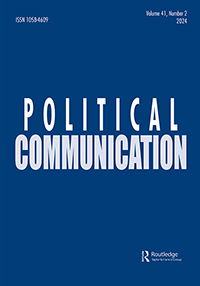The Real Problems with the Problem of News Deserts: Toward Rooting Place, Precision, and Positionality in Scholarship on Local News and Democracy
IF 4.6
1区 社会学
Q1 COMMUNICATION
引用次数: 13
Abstract
ABSTRACT While “news deserts” are rhetorically powerful, we argue the concept is deeply problematic due to its normative presumptions and its descriptive fuzziness. The concern over the loss of local journalism in the U.S. has become a moral panic. While US local journalism is in market failure, at least when conceptualized as a professional, commercial newspaper enterprise, current scholarship and public discourse about “news deserts” and the loss of local news has three major problems, all of which reinforce a false nostalgia for the role of local newspapers in communities and focus on saving local newspapers as they are rather than reimagining what local news could be. If scholars wish to fetishize the existence of a local news outlet in a community as essential to democratic life and civic connection, it might be helpful to think more critically about whether a local news outlet actually has content specific to that community. Similarly, declines are often unobservable in places that have already been limited in their local news provision because the starting point was already deeply problematic. The “news desert” deficit framing obscures historical news deserts, or areas that have long lacked access to professional, geographically specific news about their communities. We propose an approach that focuses on place-based specificity and argue that scholars may need to acknowledge that the availability of local news and information may play less of a role in overall political knowledge, social identity, and cultural cohesion in a hybridized, deeply polarized democracy.新闻荒漠问题的现实问题:地方新闻与民主学术研究的本源、精准与定位
虽然“新闻沙漠”在修辞上很强大,但我们认为,由于其规范性假设和描述的模糊性,这一概念存在严重问题。对美国地方新闻失去的担忧已经成为一种道德恐慌。虽然美国地方新闻处于市场失灵状态,至少当被定义为专业的商业报纸企业时,目前关于“新闻沙漠”和地方新闻的缺失的学术和公共话语有三个主要问题,所有这些都强化了对地方报纸在社区中的作用的错误怀念,并专注于拯救地方报纸,而不是重新想象地方新闻可以成为什么样子。如果学者们希望崇拜一个社区中地方新闻媒体的存在,认为它对民主生活和公民联系至关重要,那么更批判性地思考一个地方新闻媒体是否真的有针对该社区的内容,可能会有所帮助。同样,在当地新闻供应已经有限的地方,由于起点已经存在严重问题,往往无法观察到下降。“新闻沙漠”赤字框架掩盖了历史上的新闻沙漠,或长期缺乏获得有关其社区的专业、地理特定新闻的地区。我们提出了一种侧重于基于地点的特异性的方法,并认为学者可能需要承认,在一个混合的、深度两极化的民主国家中,当地新闻和信息的可获得性在整体政治知识、社会认同和文化凝聚力方面可能发挥的作用较小。
本文章由计算机程序翻译,如有差异,请以英文原文为准。
求助全文
约1分钟内获得全文
求助全文
来源期刊

Political Communication
Multiple-
CiteScore
13.90
自引率
2.70%
发文量
30
期刊介绍:
Political Communication is a quarterly international journal showcasing state-of-the-art, theory-driven empirical research at the nexus of politics and communication. Its broad scope addresses swiftly evolving dynamics and urgent policy considerations globally. The journal embraces diverse research methodologies and analytical perspectives aimed at advancing comprehension of political communication practices, processes, content, effects, and policy implications. Regular symposium issues delve deeply into key thematic areas.
 求助内容:
求助内容: 应助结果提醒方式:
应助结果提醒方式:


